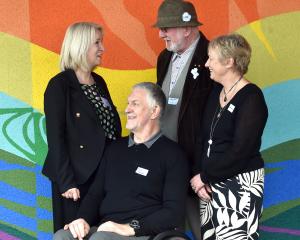
University of Otago postgraduate student Harry Gardner won the Woolf Fisher Scholarship to study towards a doctor of philosophy (PhD) degree at Cambridge in the United Kingdom.
It is one of the most prestigious and generous scholarships available to New Zealand students, with recipients receiving more than $70,000 a year for up to four years.
Mr Gardner is set to complete an honours degree in neuroscience at the end of this year before embarking on his PhD studies at the department of physiology, development and neuroscience at the University of Cambridge, particularly looking at the mechanisms of memory.
"I have family members who have suffered from dementia and because our population is ageing so much, the prevalence ratesof neurodegenerative disorders are doubling every 20 years.
"So it seems like a very important thing to research."
He described memory as "such an interesting aspect of consciousness".
About 50 to 100 people under the age of 30 apply for the scholarship each year.
Mr Gardner was among eight shortlisted students who were flown to Auckland for the interview stage.
"I was obviously very nervous, but I actually felt kind of oddly confident just before the interview."
He explained he had "always been a very logical person".
"I went into uni looking at psychology and neuroscience, but I think I just liked that in neuroscience it was more quantitative and you could put such complex aspects of brain function down to actual physiological processes."
Growing up in a very rural setting, Mr Gardner was aware the "change of pace" would be "a bit overwhelming".
But he was most excited for the "cutting-edge research techniques" at Cambridge.
"The field of neuroscience is so fast moving, and a place like Cambridge has access to all the new techniques that they don’t really offer to me here and that I’m very excited to use in my research."
He said he planned to bring all the skills, techniques and connections he made at Cambridge back to New Zealand.












